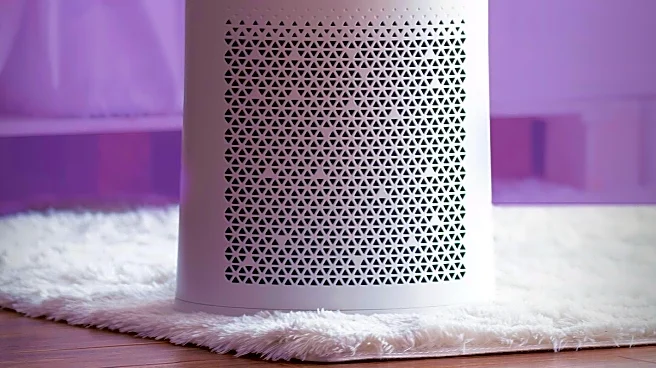What's Happening?
A study conducted by researchers from Tufts University and other institutions examined the effects of HEPA air purifiers on blood pressure among 154 adults living near highways. Participants were randomly assigned to use either a real HEPA air purifier or a sham purifier for one month, followed by a month-long break, and then switched to the opposite machine for another month. The study aimed to assess the impact of air purification on cardiovascular health in environments with high air pollution.
Why It's Important?
The findings suggest that using HEPA air purifiers could be a simple and effective way to mitigate the health risks associated with air pollution, particularly for individuals living near highways. High blood pressure is a significant risk factor for heart disease, and reducing exposure to pollutants may help lower this risk. This research highlights the potential for air purifiers to improve public health outcomes, especially in urban areas with poor air quality.
What's Next?
Further research may be conducted to explore the long-term health benefits of air purifiers and their effectiveness in different environments. Public health policies could consider promoting the use of air purifiers in areas with high pollution levels. Additionally, manufacturers might focus on developing more efficient and affordable air purification technologies to increase accessibility for consumers.









